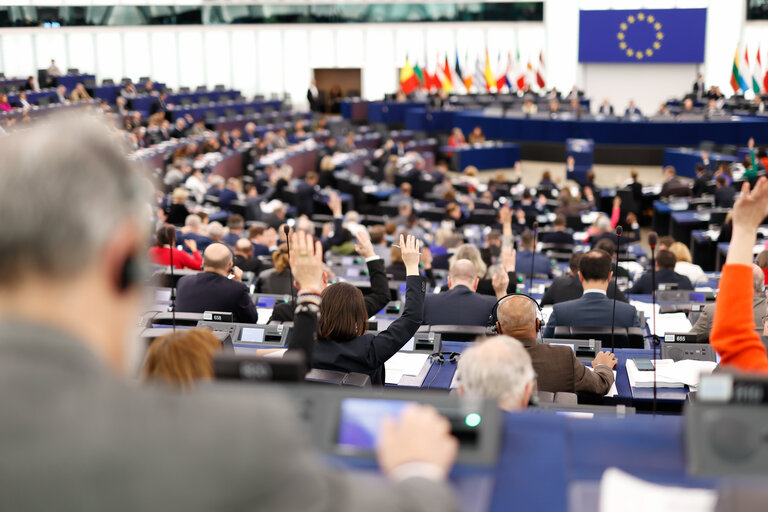
Projected changes in European Parliament composition for summer
What was once a phenomenon exclusive to Central Europe is now becoming evident in Western Europe as well.
The two right-wing groupings in the European Parliament (EP) can expect record results in the upcoming EP elections in June. The Identity and Democracy (ID) group, home to the Alternative for Germany (AfD) party and the French National Rally, is expected to achieve a 37 per cent increase in the number of seats, findings of a survey by the market research company Ipsos reveal.
ID is projected to have 81 MEPs instead of 59. The other right-wing grouping, the European Conservatives and Reformists (ECR), would see its seats increase from 68 to 76. This group includes, among other parties, Poland’s Law and Justice (PiS) party.
🗳️Visualised: the projected composition of the next EU parliament, where according to Euronews/Ipsos, pro-European parties will still hold 63% of seatshttps://t.co/ULz1HZgr6E#EUelections #EuronewsOnAir pic.twitter.com/mZFQI375bm
— euronews (@euronews) March 19, 2024
What was so far only palpable in Central Europe has become perceptible also in Western Europe. The potential future success of the ID group would be largely due to the good results reached by Marine Le Pen’s National Rally securing 28 seats, according to current polls. The AfD also enjoys growing support from voters and would gain 15 seats. In the Netherlands, the Party for Freedom (PVV) led by Geert Wilders would win nine seats, which would be a huge achievement as the party is not represented in the current European Parliament.
In other EU countries, the poll results are less clear. In Italy, for example, Giorgia Meloni’s Italian Brotherhood party is gaining strongly and would win 24 seats in the European Parliament instead of 14, but at the expense of its ally the League party, which would lose 16 MEPs. In Poland, PiS is losing popularity and polls suggest it could lose 11 of its current 27 seats. By contrast, the Polish Confederation Party, also right-wing, could win seven seats, according to polls by the US daily Politico.
It is important to note, however, that although polls show a clear increase in support for right-wing parties in the European Union, ID and ECR are still far from becoming a majority. Together they would currently land 157 seats. This would represent nearly 22 percent of the total, or about one fifth of the seats. Five years ago, that share was only 18 percent, and even less in 2014 at 16 percent.
According to calculations by the research firm Ipsos, there is currently only one coalition that could achieve a majority: if the European People’s Party were to join forces with the Social Democrats and the liberal Renew Europe parliamentary groups, the alliance would reach 55%.
And polling by Euronews and Ipsos shows that 46% of Europeans want more power in the hands of member states over EU institutions in the next term. Charles Michel, president of the European Council of EU Heads of State and Government, was far from enthusiastic about the idea, saying in a television programme that EU-level problems should be dealt with by the EU.
An exclusive Euronews/Ipsos poll shows that 46% of Europeans want more power in the hands of member states rather than in the EU institutions.
What does European Council President Charles Michel think about that? pic.twitter.com/ZhRW4SpoiX
— euronews (@euronews) March 20, 2024
Tags:

